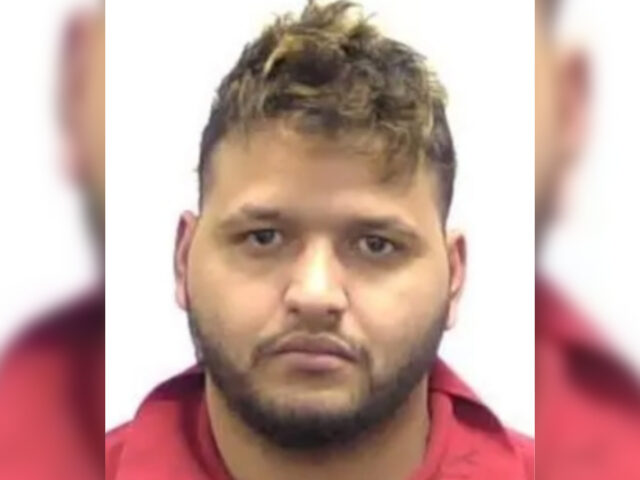Jose Ibarra, the Venezuelan illegal immigrant accused of murdering Georgia nursing student Laken Riley, is trying to bar certain evidence from being used in court, as prosecutors allege that a bloody jacket, a fingerprint, and other discoveries tie him to the victim.
The defense for Ibarra asked to suppress “(a) two cellular devices believed by the State to belong to Defendant and the information contained within them; (b) genetic and physical information taken from the person of Defendant; (c) the contents of Defendant’s social media accounts, which include Snapchat, TikTok, Facebook, and Instagram; and (d) location data obtained from Google, Inc. In support of this motion,” according to a court document filed in late August that Fox News obtained.
The defense is arguing that authorities “unlawfully collected” those items without search warrants, the outlet reported.
Ibarra, 26, was living with his two brothers — also illegal immigrants from Venezuela — in an apartment near the University of Georgia’s (UGA) Athens campus when he allegedly killed Riley, a 22-year-old Augusta University student, while she was out for a run on February 22.
The body of Riley, a UGA graduate who had recently started the nursing program at Augusta, was found hours later in a wooded area near Lake Herrick with injuries consistent with blunt-force trauma to her head and asphyxiation, Breitbart News reported.
Prosecutors have pushed back against Ibarra’s argument that the way police gathered evidence violated the “fruit of the poisonous tree” doctrine, saying that law enforcement entered his apartment less than 12 hours after Riley’s murder without a warrant because they feared that its inhabitants might “destroy evidence,” court documents that Fox News obtained reveal.
“The State anticipates that the evidence will show that shortly after the murder of Laken Riley, local law enforcement officers were looking for a person or persons depicted in two different videos,” prosecutors said. “One video was taken from near and around University Village housing building ‘S’ that was associated with the peeping Tom incident.”
On the same day of Riley’s murder, Ibarra also allegedly spied on a different UGA student through an apartment window and was hit with a separate “peeping tom” charge as a result, Breitbart News reported in May.
“The other video was taken at the dumpster of the apartment complex that abuts UGA property and is less than one half mile away from where Laken Riley was murdered,” prosecutors said.
State’s attorneys specified that the person in the video near the dumpster in Ibarra’s apartment complex was a “Latino male disposing of a bloody jacket with long dark hair on it and bloody gloves less than 30 minutes after the murder of Laken Riley and within a half mile from her body.”
“The dumpster video further shows the Latino male was wearing a black baseball cap with a white Adidas logo, white script underneath the logo, and a sticker on the bill of the hat,” the court documents note.
The search of the apartment was conducted less than half a day later when an Athens-Clarke County Sheriff’s Office sergeant saw someone matching the description “who was wearing the ‘identical’ hat that was seen in the dumpster video.”
The man identified himself to the sergeant as the suspect’s older brother, 29-year-old Diego Ibarra, and provided a fake green card — one he had previously used to score a job on UGA’s campus despite being in the U.S. illegally.
At that point, Diego was detained until another officer who could speak Spanish arrived to question him.
Authorities then made the decision to search the residence because “there was probable cause to believe that evidence of the crime of murder could be located inside the apartment,” and there was an urgent need “to secure the apartment pending the application of a search warrant for fear of additional destruction of evidence.”
“This decision was a reasonable one that does not offend the Fourth Amendment,” prosecutors said.
“To require the officers in this case to remain outside Defendant’s apartment while unknown parties inside continued to destroy evidence of the murder as the officers obtained a search warrant would defy common sense and be patently unreasonable,” officials added.
They also defended the use of DNA found during Riley’s autopsy, alleging that the test’s results “did not exclude Defendant, but also did not exclude another known individual associated with the case.”
Prosecutors said the DNA collected came from “significant and relevant items of evidence such as: Laken Riley’s fingernails, the discarded bloody gloves, the black adidas baseball cap, and the blue ‘hoodie’ style jacket and all report a match statistic that will aid the jury in its determination of the guilt or innocence of Defendant for the crimes charged in the indictment.”
Investigators also alleged that they found Ibarra’s thumb print on Riley’s cell phone.
The suspect’s trial is set to begin in November, according to Fox News.

COMMENTS
Please let us know if you're having issues with commenting.